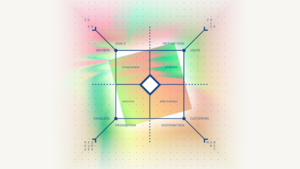What Horst Rittel Knew About Product Development and Innovation
Not one writing about the history of “Design Thinking” is missing Horst Rittel, the design theorist who coined the term “wicked problem”. But there is way more to learn from Rittel’s early teachings: Here are three things, product people need to know.
You believe that Rittel’s thinking is for designers only? When we acknowledge that digital product development and innovation is complex and therefore accept that there are no simple recipes — then there is so much to discover when reading Rittel:
1 — Accept that You Don’t Know Yet
The innovator’s knowledge regarding the product innovation is only partial, during the ongoing product innovation process there are changes in the knowledge.Adapted from Horst Rittel, The Universe of Design
When we do innovation new knowledge is created. This is why we need to embrace that we do not know everything now, that we’ll know tomorrow. We are learning and unlearning with every release.
Why not keep a list of questions, that are not easy to answer and do need time to be answered?
2 — Be Context Aware
The innovator needs to stay in touch with the changing environment of an ongoing product development processAdapted from Horst Rittel, The Universe of Design
No product lives in a vacuum. As things are moving fast the environment is constantly changing. There are millions of possible events, that might affect the product development process: colleagues may leave, new team members are onboarded — experiments let us understand our users better, a competitor changes their strategy, to name a few.
Are we aware of these changes? And once we notice: Are we able to determine what changes really affect our ongoing product development process?
A context map helps to visualize and track all the things we know or need to know about the context. Once we are able to connect that context knowledge with the value proposition of our product, it becomes easier to reflect on the effects of context changes.
3 — Strive for Mutual Understanding
Objectification in product innovation means the exchange of information among those impacted by the product innovation, to reach mutual understandingAdapted from Horst Rittel, The Universe of Design
A quick checks starts with these questions: What do we know today, that we did not know when we looked at our strategy the last time? How does this new knowledge affect our everyday doing?

For those who agree with Rittel
That is why we are building Field, a tool for those who agree with Rittel. To make it easy for product people to update their product knowledge, create maps that help to track core-context changes, and support a mutual understanding: Start using Field today to gather input, exchange information, track knowledge or open questions and adapt to context changes.

Start your customized Field trial with one of our product coaches or schedule a personal demo session.
Original Quotes
All quotes by Rittel are taken from chapter 3.1 — Structure and Usefulness of Planning Information Systems. I carefully adopted them by replacing the abstract term “planner” with “innovator” and “planning” with the activity of “product innovation”. By the way: in his later research, Rittel replaced the term “planning” with “design”, as “planning” was too often misunderstood as a theoretical activity only. In our understanding “design”, “innovation” and Rittels “planning” are all activities of knowledge creation.
“The subject of planning is only partially known, and hence during the planning process there are changes […] in the knowledge of the subject of planning.”
“The planner must remain continuously in touch with the surroundings of the problem being considered.”
“Objectification in planning means exchanges of information among those concerned in order to reach mutual understanding.”
References
Protzen, J.-P. (2010). The Universe of Design: Horst Rittel’s Theories of Design and Planning. Taylor & Francis.




